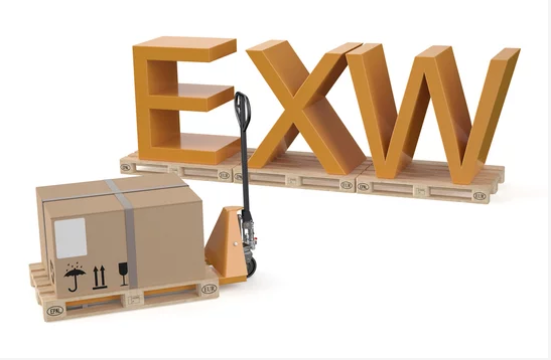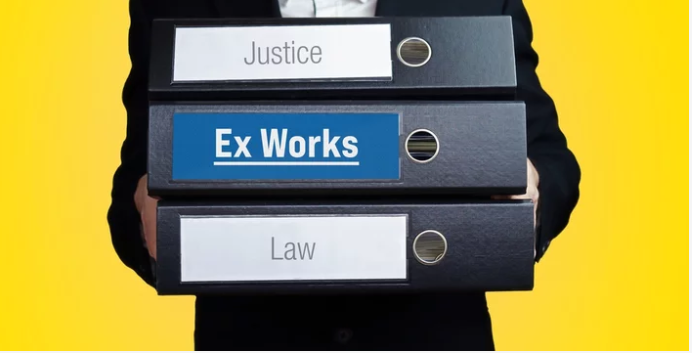
1. Responsibilities and Obligations of the Seller under EXW
Prepare the goods:
The seller is only required to prepare the goods and ensure they are ready for pickup by the buyer or their representative at the seller's premises (warehouse, factory, workshop).
The goods must be packaged appropriately for transportation, as agreed or as necessary.
Notify the buyer:
The seller must inform the buyer that the goods are ready for collection, ensuring the buyer or their transportation agent can collect the goods within the agreed time.
Provide relevant documents:
The seller provides necessary documents, such as the commercial invoice, delivery receipt, and certificate of origin (if agreed upon), so that the buyer can handle export formalities. However, export procedures are the buyer’s responsibility.
No responsibility for transportation or insurance:
The seller is not obligated to arrange transportation or purchase insurance for the goods. These responsibilities fall entirely on the buyer once the goods are ready for pickup at the seller's location.
No responsibility for loading or customs procedures:
If the buyer requests the seller’s help in loading the goods onto the transportation vehicle, this is not a formal obligation but rather a courtesy. Any costs associated with this assistance may be charged to the buyer.
The seller does not handle customs export clearance; the buyer must perform these duties or hire professionals to do so.
2. Responsibilities and Obligations of the Buyer under EXW
Arrange and pay for transportation:
The buyer must organize the transportation of the goods from the seller’s premises to the final destination.
The buyer bears all the costs of hiring transportation, international shipping, loading, and insurance during the transportation process.
Assume risk from the point of pickup:
The risk of loss or damage to the goods transfers from the seller to the buyer as soon as the goods are ready at the seller’s premises.
Handle export customs clearance:
The buyer is responsible for handling all export customs clearance, including customs registration, goods inspection, and paying any necessary taxes or duties.
In many cases, the buyer will need to hire a logistics company or customs broker to handle this.
Insure the goods (if desired):
The buyer has the option to purchase insurance for the goods during transportation. If insurance is not purchased, the buyer assumes full responsibility if the goods are damaged or lost during transit.
Handle import customs clearance:
Upon the goods’ arrival in the import country, the buyer must take care of customs clearance, including paying import duties, VAT (if applicable), and other fees as required by local customs regulations.

3. Transfer of Risk under EXW
The risk is transferred from the seller to the buyer once the seller notifies the buyer that the goods are ready for collection at the seller’s premises.
The buyer assumes all risks of loss or damage to the goods from this point, even if the goods have not yet been loaded onto a vehicle for transportation.
4. Practical Use of EXW in International Trade
EXW is commonly used when the buyer has strong logistics capabilities and is familiar with international shipping processes. The buyer must manage all aspects of transportation, including domestic transportation, export customs clearance, international shipping, and domestic transportation in the import country.
EXW may also be used in domestic trade, where the buyer can easily arrange transportation and is not concerned with international procedures such as customs clearance.
5. Advantages and Disadvantages of EXW
Advantages for the Seller:
Minimal responsibility:
The seller only needs to ensure the goods are ready for collection at their premises. They do not need to take on any risks or manage international shipping processes.
Simplified management:
The seller does not need to worry about complex procedures like export clearance, shipping, or insurance.
Disadvantages for the Buyer:
High responsibility:
The buyer must take care of every step in the process, from collecting the goods, arranging transportation, handling export and import customs clearance, to final delivery.
Greater risk and costs:
The buyer bears all risks of damage or loss from the point the goods are ready for pickup at the seller’s premises, potentially leading to extra insurance costs.
Complexity in international trade:
For international trade, EXW can be very complex for the buyer, especially if they are unfamiliar with the export procedures of the seller’s country.
6. Real-Life Scenarios Using EXW
Example 1: Domestic Transaction
A company in Hanoi wants to purchase raw materials from a supplier in Da Nang. They use the EXW term. The supplier in Da Nang will prepare the goods at their warehouse, and the company from Hanoi will arrange for transportation to collect the goods and bear all costs and risks from the point of collection.
Example 2: International Transaction
A business in Japan wants to buy electronic components from a supplier in Vietnam. The Vietnamese supplier uses the EXW term, and the Japanese business must arrange transportation from the supplier’s warehouse, handle the customs export process in Vietnam, and ship the goods to Japan. The Japanese buyer is also responsible for handling customs clearance upon arrival in Japan.
Conclusion
The EXW term requires the buyer to have experience in logistics, transportation, and customs procedures. While it minimizes the seller’s responsibilities, it imposes more risks and costs on the buyer, particularly in international transactions.
If the buyer is not familiar with international transportation or customs, other terms like FCA (Free Carrier) may be more suitable, where the seller assumes responsibility for part of the transportation and export clearance procedures.